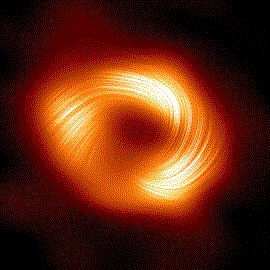<- Back home <- Put the book back

Entropic Flower Crown
All things tend towards entropy. It is certain, absolutely, that in the broad course of history, that all things will come to an end. The sun swallows the earth in a forge of power. Empires rise and fall, and the earth is indifferent to it, but for the empires' temporary trodding on its neck. This is good and all, but ultimately a concerning conclusion to reach if one is trying to develop a truly resilient society, one which may stand the test of time and treat its people well. Certainly there is a non-entropic path? One which may preserve us for the ages, go down in the halls of history? No, I say; entropy is inevitable. Nations war and collapse the others, eating and absorbing them, forming empires. The empires rule with strengthening fists. People become disgruntled, and either a revolt strikes out or a foreign nation or empire does. Collapse, crash, everything dies down again, at least until the next nation settles the entropised land, attempts to turn back the wheels of time in a pitiful act showing their absolute futility once more.
Civilisation veers itself, then, towards entropy. Everything returns to matter, kings become worm food. The earth has remained the longest, even as we veer it towards destruction. Nature has had its time to embrace entropy, and therefore it finds itself with peace between the two energies, and become one in the same as nature pushes entropy through short-term material decay, with entropy itself pushing long-term total decay. It is inevitable, then, that entropy would take civilisation, the preservation of the decay forces of nature being an added bonus. But it is very simple that nature and civilisation are, for the most part, opposed to each-other, with one seeking entropy and mutual relationships whilst the other seeks rapid growth, accumulation, and hierarchial relationships (most notably manifested in capital's relations with society). It is ironic, in a sense, that civilisation depends on nature to survive yet cannot allow nature to survive. For one to want nature, and by proxy, the human species, to do well, one must embrace entropy, and in doing so reject civilisation entirely.
And entropy brings renewal. The dead are recycled into the earth, for the living to sprout up once again. We come up better than last time, but lessened in numbers. Entropy takes another. It is, in my opinion, perfectly fine. We have, perhaps, even been left rampant with minimal entropy for too long; perhaps one can then consider modern society the consequences of an anti-decay society, rather than a decay-cooperative society; that is to say, a capitalist society as opposed to a socialist society. Socialism tends towards entropy, after all; the flattening of hierarchies, entropy, the return to locality, entropy, egalitarianism, entropy, the end of currency, entropy, the minimisation of harmful industrial and agricultural practices, entropy, and so on. I believe you can understand this concept well enough - socialist and socialist-adjacent ideologies (anarchism, the post-left, et cetera) always tend towards entropy. When they do not, they are very likely not socialist, such as the Blanquists, which tend towards hierarchial structures and the perpetuation of capitalism through a lack of substantial, material goals by which to abolish it. All of this is to say that a socialist or socialist-adjacent society is likely the most resilient thing humans will be able to form as it will embrace, rather than oppose, the decay of civilisation, and the inevitable end of humanity shall simply become a comfortable bed of earth and moss for us to happily lie in one last time whence the day comes.
Then finally, the last renewal. A world almost too small to view, with so few people. Entropy has at last claimed its prize. In the last moments of their lives, they feel the heat rise. The forge expands outwards, the flames burning brighter and brighter. Fleeing to the coldest of regions, they find those too to become uninhabitable. And as the earth exits the habitable range of the sunforge, the tree rooted above my burial grounds smiles for me, laughs and is filled with joy. For it knows, at last, we have found peace, we have reached utopia. For there shall be no more future, we have found our perfect selves - ourselves. We will not have concerns for the end, for we will have made our lives as good as can be in order to enjoy living them before that death.
Millions of years pass without humans nor creative sentience. Peace has fallen across nature once again, a quiet reality. Stars slowly begin expanding, exploding, imploding, the light ceases to hit the husk of Gaia. The sky begins to go dark, darker, as black holes expand to devour more and light ceases to come from the night sky. Planets upon planets left without light sources, brought into entropy's warm embrace. Millions more years must pass for our nonexistent selves to see the last light of the stars go out, only the dimmest lights having survived so long. Then, finally, the black holes are left, and the radiation from them wears off as the entropic destruction of mass ends and energy settles at last, once and for all.
